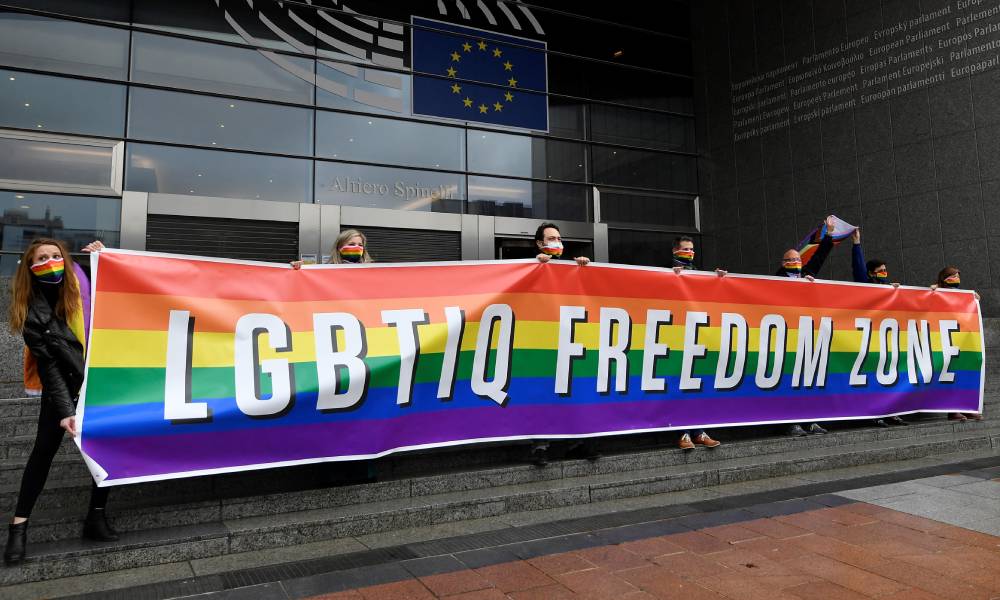No EU cash for ‘anti-LGBT’ zones in Poland, European Commission confirms

The European Commission has confirmed that “LGBT-free zones” in Poland will not receive funding. (Getty Images)
The European Commission has confirmed that anti-LGBTQ+ zones in Poland can “kiss their EU funding goodbye” if they continue to enforce discriminatory policies.
In 2019, more than 100 municipalities in Poland declared themselves LGBT-free zones. Local authorities in the areas pledged to discourage tolerance and stopped providing funding for non-governmental organisations (NGOs) that promoted equal rights.
Since the declaration, the European Commission has kept an eye on Poland, saying that the anti-LGBTQ+ zones may violate European Union law regarding discriminatory legislation, on the grounds of sexual orientation.
The commission warned any regions upholding discriminatory policies would have their funding revoked and some backed down, fearing losing millions of euros.
Elisa Ferreira, the European Commissioner for Cohesion and Reforms, and European Commissioner for Jobs and Social Rights, Nicolas Schmit, visited Poland in February.
This prompted EU’s LGBTI Intergroup vice-chairman, Pierre Karleskind, to send the pair a letter, asking the commission to keep its promise to withhold funding.
‘Funding will not be granted’
“We consider letting EU money flow in those regions, counties and municipalities, represents too big a threat to the EU’s core values,” he wrote.
“I would like to receive written assurances that not one euro of EU money will end up in
any of the LGBTI-free regions, counties or municipalities.”
Schmit and Ferreira responded by saying that Poland “agreed to introduce a specific anti-discrimination clause in its partnership agreement” that states funding will not be granted to any local authority that participates in “discriminatory action”.
The European Commission promised to “continue to monitor the developments on the ground and expects Poland to apply the clause rigorously”.

Whenever the predominantly Catholic nation requests money from the EU, they will be assessed within a two-month period to ensure they’re complying with the law.
If not, the commission can “impose interruption or suspension of payments and shall impose financial corrections”.
Karleskind said: “It’s a victory for love over hate, and for the EU’s commitment to equal rights. As for those who still cling to discriminatory ways, they can kiss their EU funding goodbye.”
When the zones were first introduced, the European Commission intervened, and four regions –Świętokrzyskie, Lubelskie, Małopolskie and Podkarpackie – revoked their resolutions, while Łódzkie modified its stance.
Despite some regions backtracking, there are still many more holding firm.
An “Atlas of Hate” map created by activists reveals the extent to which Poland is still committed to the LGBT-free zones.
This upswing in homophobia is partly due to PiS (Law and Justice) party leader, Jaroslaw Kaczyńsk, who secured an election victory on the back of a campaign that was criticised for its anti-LGBTQ+ rhetoric.
Municipalities started passing the first resolutions against “LGBT propaganda” in March 2019, just as PiS ramped up its anti-LGBT messaging.
In response, the EU declared itself an “LGBT+ “freedom zone”.

